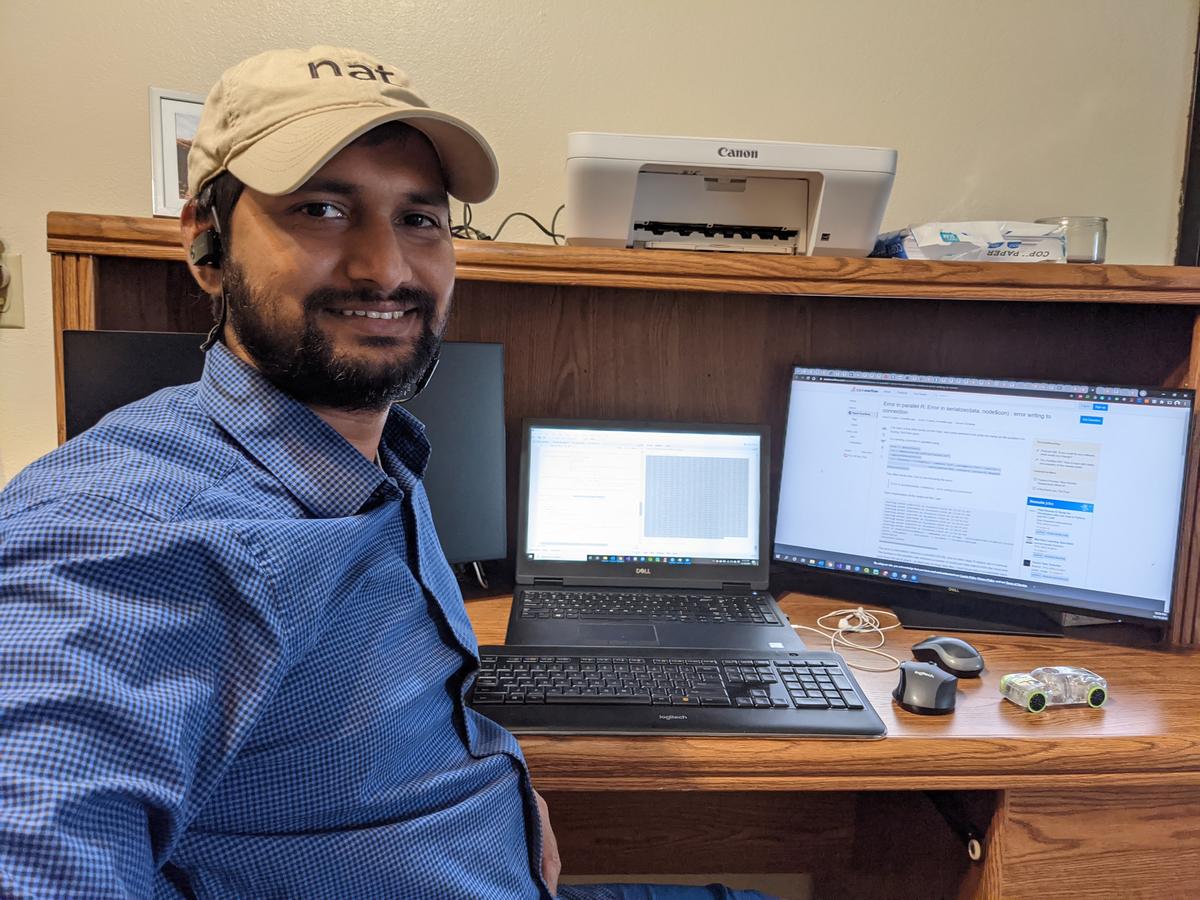In Economics 101 students learn that this field of study is all about production, consumption and the transfer of wealth. But there’s another economics field that is less known: natural resource economics. Its focus is on how to operate an economy within the ecological constraints of earth's natural resources.
And the big question: What are the connections and interdependence between human economies and natural ecosystems?
Saleh Mamun is NRRI’s natural resource economist specializing in ecosystem services. He came to NRRI in 2019 to fill a joint position at NRRI and the University of Minnesota’s College of Food, Agricultural and Natural Resources Sciences, in the Applied Economics Department. The duo role, split 50/50, makes Mamun a bridge and a conduit between NRRI and the Twin Cities campus.
And to the world.
One of his current projects is a global analysis that will provide national-scale indicators on the efficiency of natural and capital management to inform policy and strategic decisions. This Natural Capital Index is a collaborative project between the University of Minnesota and Stanford University researchers, funded by the World Bank Group.
But what, exactly, is “natural capital?” It’s all of the world’s natural assets – geology, soil, air, water and all living things. Human life depends on a wide range of benefits, often called ecosystem services, from this natural capital.
“The Natural Capital Index is a measure of the efficiency of sustainable use and management of natural capital in a country,” Mamun explained. “It measures the contribution of the ecosystem services, using a variety of metrics, relative to the services that could be achieved given a country’s natural capital endowment.”
Collaboration
Given the duo-role, Mamun has a foothold in the greater University of Minnesota system, of course, but he also regularly collaborates with scientists and engineers at Stanford, Boston and Bowdoin Universities.
He’s also working with a multi-disciplined NRRI team to develop a Forest Optimization Tool. Mamun’s role is to evaluate biophysical ecosystem services and convert them into monetary value, considering the trade-off among ecosystem services. He’s also analyzing the life cycle of forest harvest production.
“This will be a valuable tool for forestry sector policymakers to decide best forest management practices,” said Mamun.
Strumming at home
The 2020 pandemic stay-at-home orders have given Mamun time to finally start guitar lessons. “I’m learning via video tutorials,” he said. “Right now I’m just practicing my chords, but my goal is to play ‘Nothing else matters’ by Metallica.”
